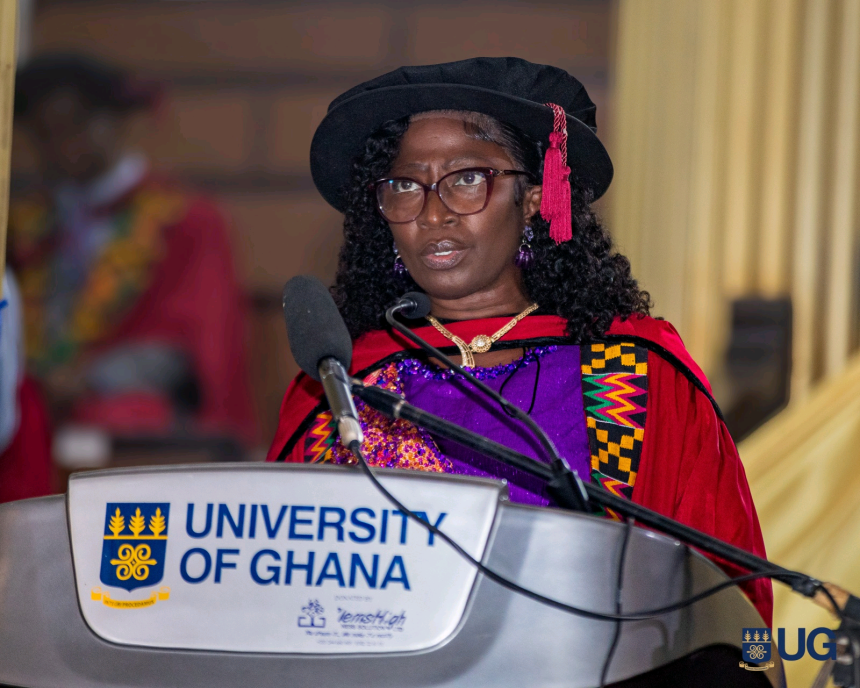Renowned toxicologist and Fellow of the Ghana Academy of Arts and Sciences, Professor Regina Appiah-Oppong, has urged the government to partner with private sector players to increase investment in Ghana’s herbal medicine sector. According to her, this would create jobs and provide a viable alternative to conventional medicine in the country.
Her call comes in the wake of the University of Ghana hosting its final Inaugural Lecture for the 2024/2025 academic year at the Great Hall on July 31.
The lecture, held under the theme “The Potential Role of Medicinal Plants in Ghana’s Healthcare and Economy”, drew on Professor Appiah-Oppong’s extensive years of research and collaborative work in the field.
Addressing a colourful and well-attended gathering, she asserted that herbal medicine, if properly harnessed, could serve as a credible alternative to orthodox medicine, stimulate employment, and generate substantial revenue for the state.
“In today’s contemporary world, we must move beyond focusing solely on orthodox medicine in our healthcare systems and embrace herbal medicine as a viable alternative.
“This move will enhance the efficiency of the system, create jobs for professionals in the field, and generate huge revenues for the state by tapping into the multi-billion-dollar industry,” she said.
Citing African countries with thriving herbal exports, she added: “In 2025, Egypt and Morocco earned $55.9 million and $174.2 million, respectively, from the export of herbal medicines. South Africa alone raked in $165 million from raw herbal medicine sales, in addition to earnings from countries like Malawi and Congo.
“To put it mildly, the sector — if properly harnessed — is a cash cow. The data shows that African herbal medicine can compete favourably with global counterparts, provided governments invest heavily in research and innovation to sustain that competitive edge.”
Touching on Ghana’s domestic context, Prof. Appiah-Oppong noted that herbal medicine predates modern healthcare in the country and should be fully formalised to unlock its benefits.
“In 2010 alone, Ghana traded over 951 tonnes of crude herbal drugs valued at $7.8 million. Yet, much of this remains undocumented — a missed opportunity that calls for structured investment and support.
“In 2024, the President of the Ghana Federation of Traditional and Alternative Medicine (GHAFTRAM) projected that herbal medicine has the potential to accrue up to $76 million annually for Ghana, if coordinated systems are put in place.”
She also lamented the lack of pharmaceutical equipment, standardisation, and policy direction, which she said continues to stall the sector’s growth.
“To fully harness the potential of herbal medicine, we need adequate pharmaceutical equipment, well-resourced testing laboratories, and trained professionals to address existing gaps.
“Once we fix the policy loopholes, local Ghanaian companies can prioritise the sector, create jobs, and share profits with the state in a win-win arrangement.”
Professor Appiah-Oppong further advised practitioners and investors in traditional medicine to focus on quality assurance and international best practices to remain competitive in global markets.
–
Story by Sika Togoh|univers.ug.edu.gh





